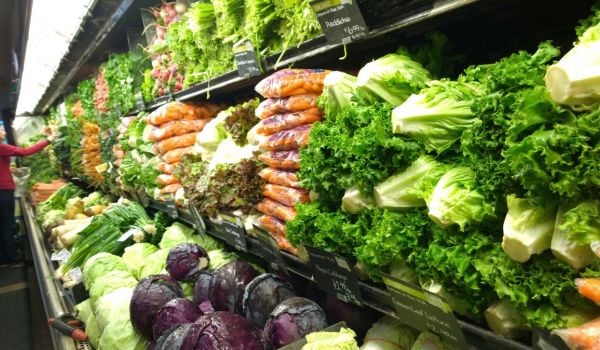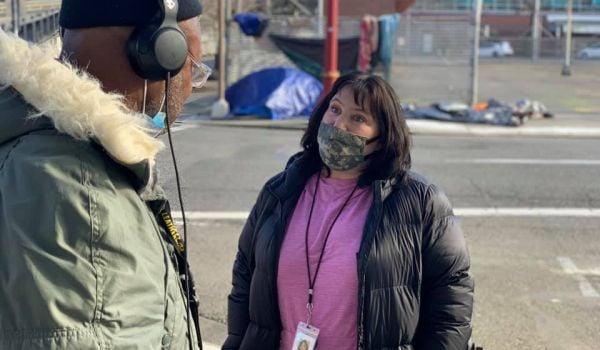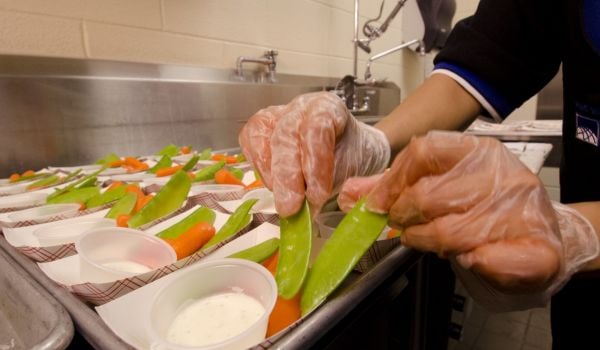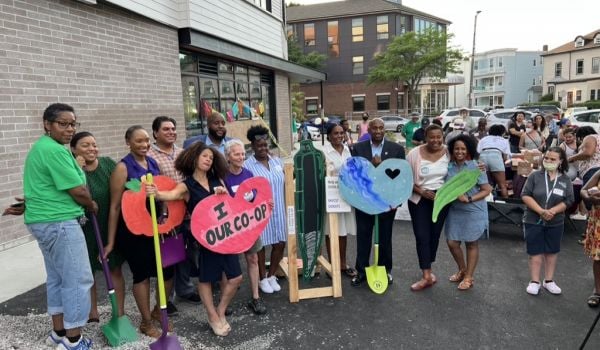Master Gardener programs are effective ways to teach people to grow their own food, a skill the Oregon Food Bank wanted to start teaching to those experiencing food insecurity about a decade ago. However, they quickly realized that everything from the cost to the time commitment required to complete a course was out of reach for many of the people they wanted to serve. That’s why, in 2012, the Oregon Food Bank teamed up with Oregon State University’s Extension Services to develop Seed to Supper, a six-week gardening education course designed to empower adults to “grow a portion of their own food on a limited budget.”
Focused on eliminating hunger and its root causes, from systemic racism to classism and sexism, the Oregon Food Bank has most recently been targeting its gardening classes toward refugee and immigrant communities.
“A lot of the work we do is analyzing barriers for our target audience — those at risk for or experiencing food insecurity — at the family or individual level,” says Devin Dinihanian, the garden education program coordinator at the Oregon Food Bank. “We look at things like tuition and retention and scheduling and the lack of childcare.” Through partnering with Oregon State and condensing a Master Gardener course into a downloadable six-week curriculum consisting of the most relevant information and held in accessible places and times, and with external support like childcare, the food bank has been able to put around 1,200 people through its gardening program each year. Because the curriculum is free to anyone who wants to use it, the program is also currently operating in five other states.
The course spans six weeks with a one-hour course each week. Rather than kicking off with the basics like traditional Master Gardener programs do, the food bank’s program starts with planning a garden to keep learnings relevant from the start. “It’s recommended to start with a robust chapter on soil health, but one of the things we learned through using a food security lens is that the folks who are coming are not going to sit around and listen about soil health for two hours,” Dinihanian says. “It’s not going to meet their needs.”
It’s after the planning chapter that the course gets into the role of soil health, followed by planting methods, two chapters on caring for a garden, and a final chapter called “Harvesting Your Bounty.”
Beyond a heavy focus on keeping material relevant to new American gardeners in particular, the other central element of the program’s success is the food bank’s outreach efforts.
In addition to translating its program into Spanish in 2014, the Oregon Food Bank also developed a curriculum to train community leaders to be ambassadors for the program among their own communities as well as be facilitators for the program. “There were still large populations of refugees in Portland who couldn’t access the food bank, so we developed a pilot ambassador program in 2017,” Dinihanian says. Facilitators are compensated (although some choose to waive their stipend) so the program’s expansion did not have to be tied to the ability and availability of volunteers.
One of the food bank’s ambassadors is Sandi Wells, who is heading into her second year as an ambassador for the state’s Micronesian community (thought to be the largest in the U.S.). After immigrating from Pohnpei in Micronesia to Portland in 1980, Wells quickly became involved in her new community. “We have been predisposed to Type 2 diabetes because of how colonization impacted the Pacific Islands. We were introduced to canned food and rice,” Wells says. “Noncommunicable diseases are endemic so we’re trying to re-learn how to cook and grow healthy food and address the high blood pressure, diabetes, and obesity.”
Wells first came into contact with the food bank in 2017 when she participated in its FEAST program designed to spark discussions around food and inspire actions to build a sustainable and more equitable food system. Across the FEAST event and her continued participation in the Seed to Supper program, Wells has been involved in starting two community gardens in Portland as part of an effort to help her community learn how to garden in the Pacific Northwest. Wells has since translated the food bank’s gardening curriculum into Pohnpeian and has used the food bank’s spaces for not-necessarily-food-related community gatherings, such as one on the importance of participating in the census.
Both the gardens and the Seed to Supper program have become about more than just food for Wells’ community. Of course, there’s education around the impacts of healthy versus unhealthy food and how to get off the ground with gardening, but it’s more about feeling at home in a new home. “It’s a reason to get together and a way to find resources to make the foods they’re familiar with or find other products here to make the food they’re familiar with,” Wells says.
“We have a lot of Japanese influence in our culture, certain vegetables like loose- leaf Napa cabbage, that we enjoy eating. We planted that and water spinach. We bring it to community events to share and it’s a really wonderful feeling for me and us as gardeners when people say, ‘Wow, I haven’t had this in a really long time,’” she adds. “It’s another layer to the community.”
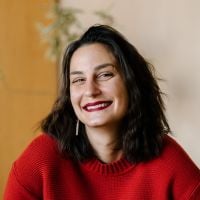
Cinnamon Janzer is a freelance journalist based in Minneapolis. Her work has appeared in National Geographic, U.S. News & World Report, Rewire.news, and more. She holds an MA in Social Design, with a specialization in intervention design, from the Maryland Institute College of Art and a BA in Cultural Anthropology and Fine Art from the University of Minnesota, Twin Cities.
Follow Cinnamon .(JavaScript must be enabled to view this email address)

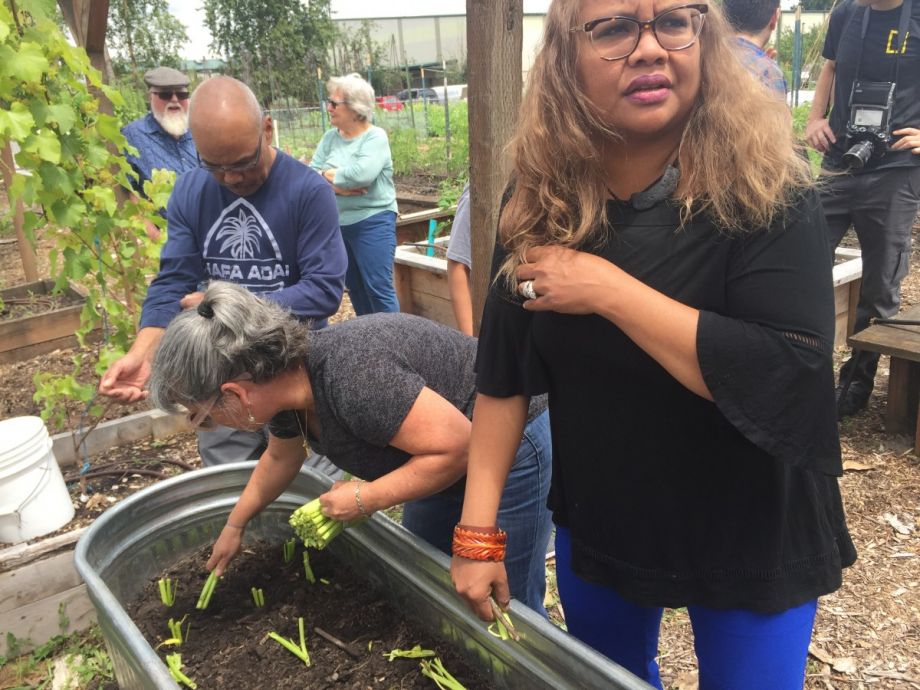
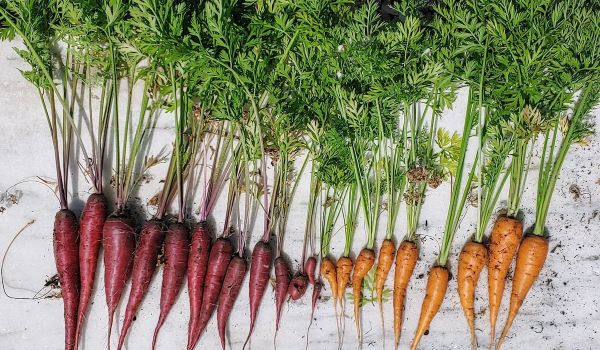
_600_350_80_s_c1.jpg)
